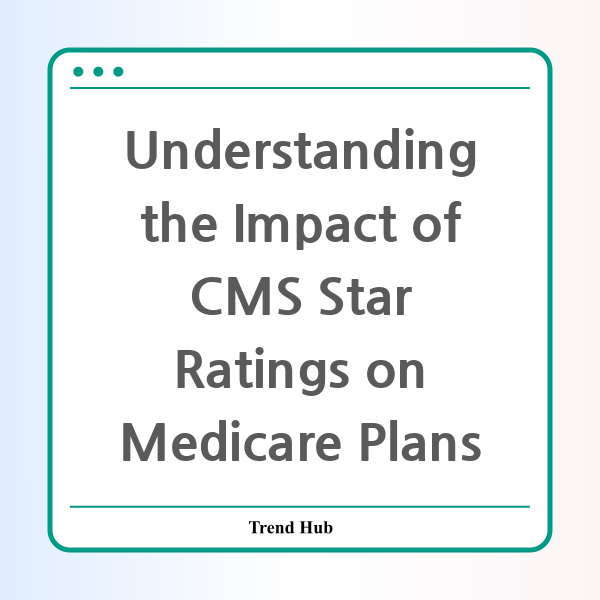* This website participates in the Amazon Affiliate Program and earns from qualifying purchases.

The recent decision by the Centers for Medicare and Medicaid Services (CMS) to withdraw its appeal regarding the recalculation of UnitedHealth's Medicare Advantage star ratings has sent ripples through the health insurance industry. This move, which comes on the heels of a court ruling that forced CMS to reconsider its ratings methodology, raises important questions about the future of Medicare Advantage plans and how ratings impact both insurers and beneficiaries.
Medicare Advantage plans, which provide an alternative to traditional Medicare, are evaluated by CMS on a scale from one to five stars. These ratings are critical as they guide consumers in selecting the best healthcare plans available. A higher star rating often correlates with higher enrollment numbers, better funding, and increased bonuses from the federal government. For UnitedHealth, the stakes have never been higher, particularly as they navigate the fallout from a court decision that could significantly alter their financial outlook.
According to reports, UnitedHealth's star rating declined after CMS docked points for a dubious call handling metric. Specifically, a single unsuccessful call to a CMS test caller seeking a foreign language interpreter led to a drop from a 5-star to a 4-star rating. UnitedHealth argued that the rating downgrade was unjust, considering it hinged on one call, which they claimed was mishandled by the test caller.
The implications of this rating are substantial. A lower star rating not only affects the immediate financial landscape for UnitedHealth but also threatens to drive potential members away who are increasingly shopping for plans based on star ratings. With a significant portion of Medicare Advantage members coming from lower-income backgrounds, the need for clarity and accessibility in plan ratings has never been more critical.
Other insurers, such as Centene and Humana, have similarly challenged CMS over star ratings, citing concerns over fairness and transparency. The ripple effect from this decision could have profound implications for the entire Medicare landscape, especially as more seniors and diverse populations seek out Medicare Advantage plans. Notably, enrollment among minority communities has surged, indicating a shifting demographic landscape that insurers must adapt to.
In light of these developments, it's essential for consumers to stay informed about how star ratings are calculated and the ramifications of any changes. Understanding the factors that contribute to these ratings can empower beneficiaries to make educated decisions about their health care coverage.
As we move forward, the role of CMS and its methodologies will be crucial in shaping not only the financial health of insurers but also the overall experience of beneficiaries who rely on these plans for their healthcare needs. Will this shift in approach signal a new era of transparency and fairness in how Medicare Advantage plans are rated? Only time will tell, but for now, stakeholders across the board must prepare for the potential impacts of these changes.
In conclusion, the recent decision by CMS to withdraw its appeal has opened a new chapter in the ongoing conversation about Medicare Advantage star ratings. It underscores the importance of accountability and fairness in the healthcare system as we strive to meet the needs of an increasingly diverse population. Keep an eye on this evolving situation as it could fundamentally alter the landscape of Medicare Advantage plans for years to come.
* This website participates in the Amazon Affiliate Program and earns from qualifying purchases.